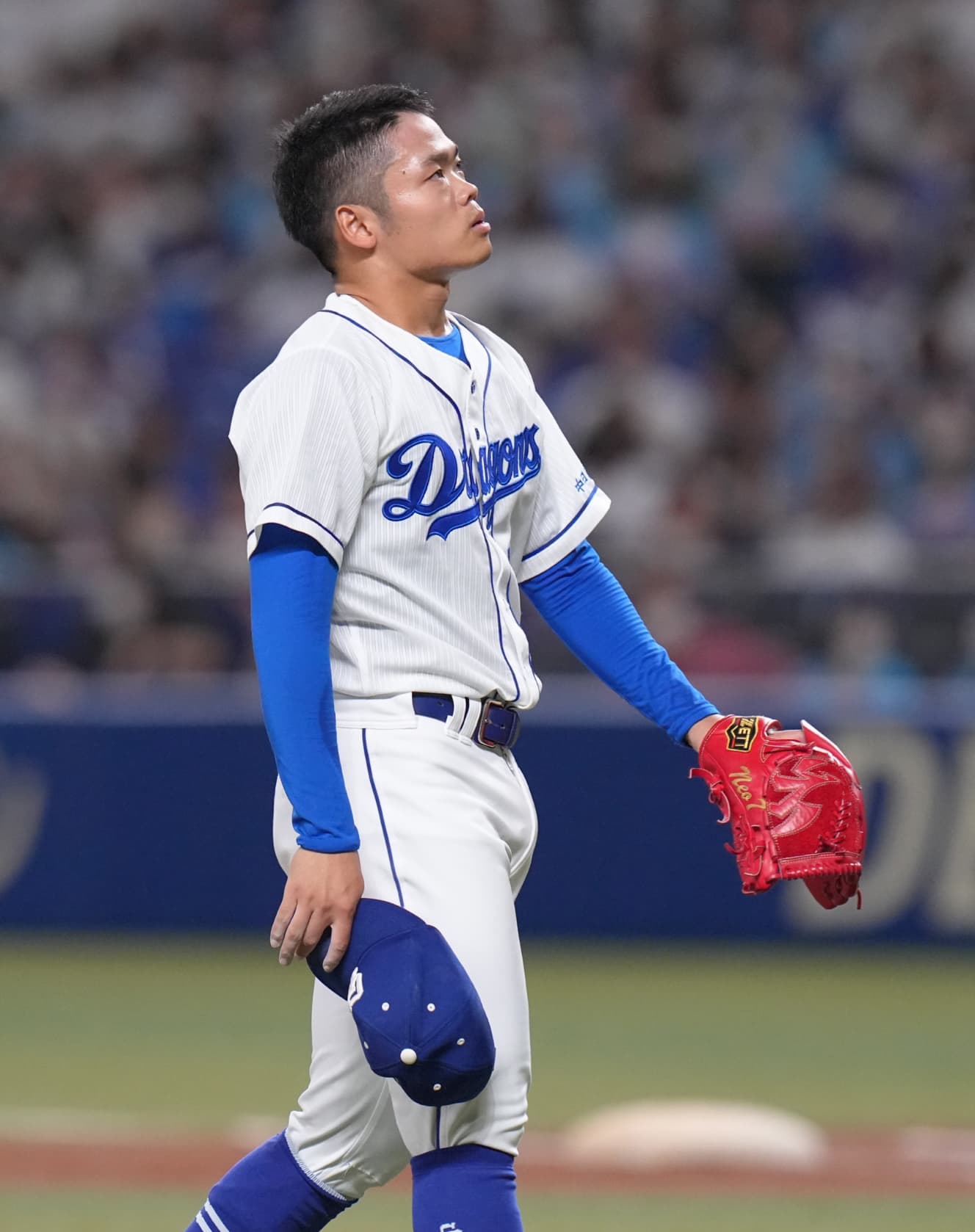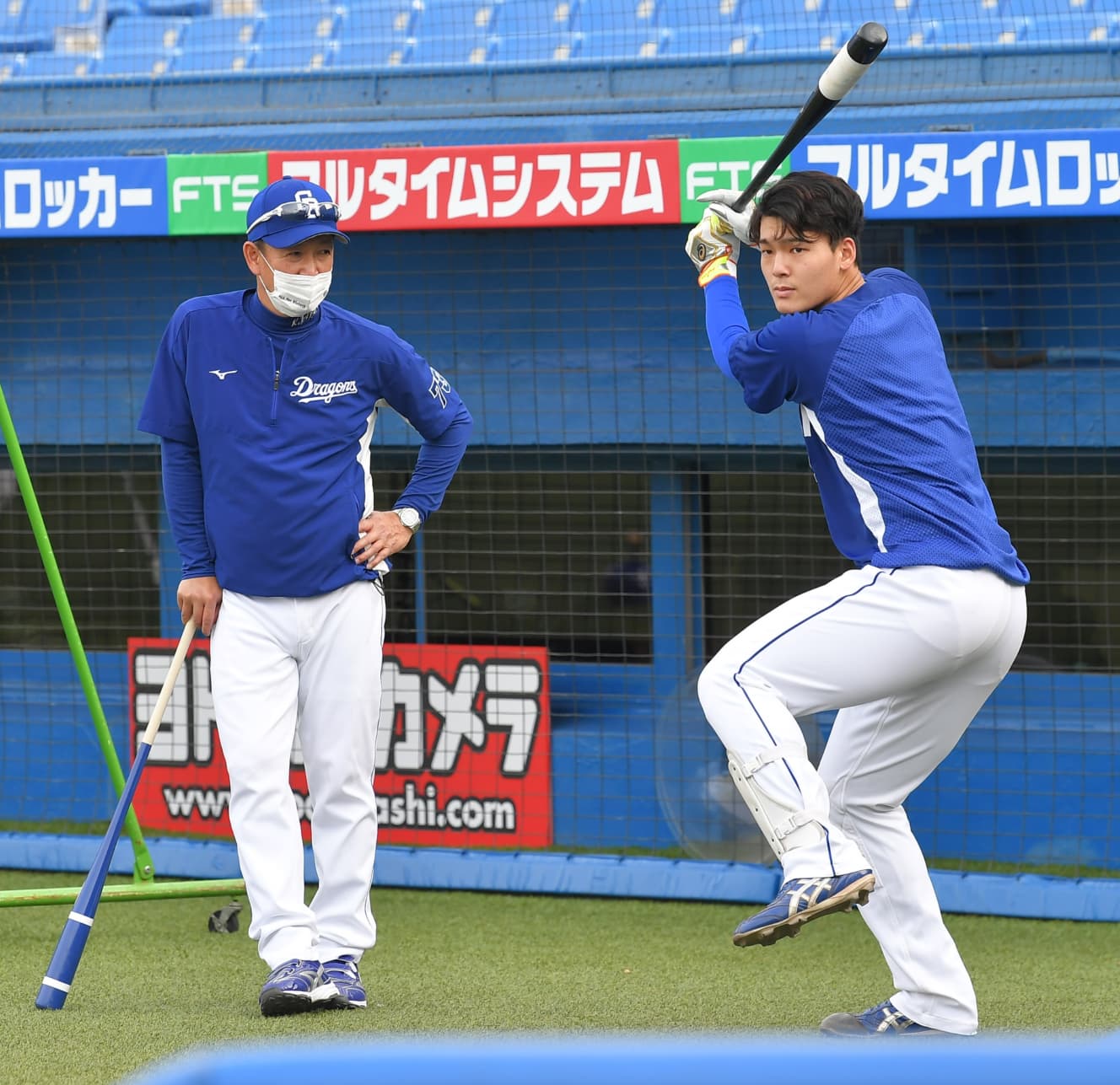The reason why the coaches of a strong high school baseball team shun “that team”.

About a month and a half until the professional baseball draft conference. The time is approaching for stars who played at Koshien again this year, such as Shogo Asano, an outfielder for Takamatsu Sho, and Yohsho Yamada, a pitcher for Omi, to enter the world of the pros. At the same time, there is a baseball team that has been receiving a lot of disapproval from the high school baseball world, saying, “We don’t want our kids to go there.
The coach of a prestigious baseball school that participated in this summer’s Koshien tournament, speaking on behalf of several coaches, pointed out in an emphatic tone, “To be honest, Chunichi is the only one I don’t want to send my kids to.
To be honest, I don’t want Chunichi to be the only one. I don’t think the players are being nurtured. After a few years, they all become the same type of players, the type who make money by rolling the ball and making money with their legs and defense. It’s the same when you look at the results of the first team this year. I can only think that they are coaching and building the team in such a way as to ruin the long-hitting ability the players had.”
As this manager points out, Chunichi, which is in last place in the Central League as of January 7, has hit 58 home runs, the worst among the 12 teams in the Central League. The irony of this is that the Internet is not comparing teams, but rather the Yakult team, Munetaka Murakami, who is dashing to the top of the triple crown, with 52. In the past, players who had been among the best long-distance hitters in high school, such as Ryosuke Hirata (34), who joined the team with a bang from Toin Osaka, and Shuhei Takahashi (28), who hit a total of 71 homers for Tokai University Kofu and was expected to be a left-handed cannonballer, have been forced to switch to an average type.
A reporter for a sports newspaper commented, “Perhaps because Chunichi is based in a large domed stadium, the culture of nurturing long-distance hitters has not taken root. If you look at individual players, there are excellent ones, but you can’t deny the impression that they are all small. No Japanese hitter has won the title of home run king since 1997, when the team moved to its new home base,” he said, pointing out the effects of having been based in the spacious Buntelindome for a quarter of a century.

Chunichi’s reputation for training players has always been poor, and this was compounded by the distrust of their training policy toward Akira Neo, 22, a pitcher.
At Osaka Toin High School, Neo was a key player in winning back-to-back spring and summer Koshien championships as a pitcher and outfielder, but in his first year as a professional pitcher, he announced his intention to play only the position of a shortstop. Last season, his third year, he appeared in only 5 games as a fielder and 62 games as an outfielder, almost exclusively as an outfielder. He was treated almost exclusively as an outfielder. Before the season started, manager Kazuyoshi Tachinami (53) announced that he would focus solely on the outfield, and just before the spring training camp, he declared, “I will play the outfield as a regular.
However, on April 21, about a month after the opening day of the season, the team commander said, “There are many outfielders, so I don’t have a chance now. Kyoda has no rival. He was demoted to the second team in order to try playing the position again and to improve his hitting. However, on May 8, he made a sudden turnaround and took the mound for the first time in a game with the second team. On May 21, he made his first appearance with the first team. On June 13, it was announced that he would officially switch to pitching.
A reporter wrote , “Nebo’s hitting had been improving in the second base after his conversion to a fielder’s bat. However, he was given very few opportunities to bat in the first team, and many on the team regretted it, saying, “I would have liked to see him bat more. Was there any meaning in his re-conversion? It could be seen as a blurring of policy.
He had been a reliever with his fastest fastball (154 km/h) and sharp slider, which more than made up for his lack of experience as a pitcher, but on August 17, with two outs in the 11th inning against Hiroshima, he gave up a double over the center field wall to Matsuyama, the Hiroshima substitute batter, on the first pitch of the extra inning. He was hit by a double over the center field wall with two outs in the 11th inning, and lost the game. One of the team’s alumni wrote on his Twitter page, “This is unbelievable,” right after the scene in question.
The nine members of the team did not greet Neo, who was returning to the bench after his first humiliation as a pitcher, nor did they give him any kind of support for his pitching in such a terrible situation. There is a testimony that they called out to Neo in the bench when he returned, but this scene was filmed by a fan in the stands and spread on social networking sites. The scene was filmed by fans in the stands and spread on social networking sites. It became a symbolic scene of the team’s poor atmosphere as well as the team’s inability to nurture its players.
In the past 10 years, the team has only finished in the A-Class once, in 2008, when the season was shortened. The team is in the midst of its darkest period, and there is no light of recovery in sight.